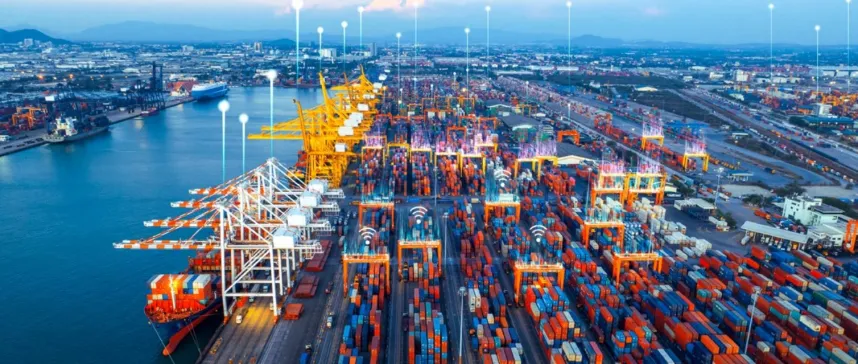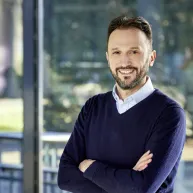Logistics Engineering
Group leader
Specific themes and goals
- Sustainable logistics and supply chain management: Material flows in supply chains need to be designed properly to ensure environmentally-friendly sourcing and delivery. We worked with a large automotive supplier on a simulation-based supplier network analysis to detect anomalies. Through this we optimized their network and routes. Additionally, we are currently analyzing the potential of implementing a circular economy approach in the automotive supply industry. We are also investigating a potential material change in the automotive accessory industry to achieve better sustainability scores, while considering total costs. In addition, we work on the deep understanding of outsourcing decision making. Here, we have developed a simulation-based decision support tool for outsourcing, which shows all the effects of such a strategic decision.
- Smart Logistics Systems Design: Logistics and production systems are nodes in supply chains that need to be designed for efficient operations. We are working on adopting virtual-reality applications in logistics systems, and are currently developing a self-learning methodology for dynamic layout re-planning in virtual reality. We are also investigating the effects of Industry 4.0 applications on employees in the design stage. In addition, as part of a publicly funded research project, we are developing a predictive cost-benefit analysis for the implementation of Industry 4.0 technologies in production.
- Intelligent Management of Logistics Processing: The planning and organization of logistics-related processes in the value creation is of utmost importance for efficient operation. We are currently investigating the root causes of quality-related problems in collaboration with a large automobile manufacturer. Our aim is to reduce rework in the automotive value chain. Together with Prof. Marc-Thorsten Hütt from the Computational Systems Biology group at Constructor University, we have been working on holistic scheduling with the help of machine learning and emerging algorithms, especially in the steel industry. Some of these projects have led to prototypes. Prof. Uygun has also developed a proprietary algorithm-based method of adaptive inventory planning in a volatile environment. This method has been successfully tested and validated in several companies.
- Innovative logistics technologies: Novel technologies directly affect production and logistics requirements. We are working on the further development of 3D printers and were able to produce the largest industrial delta-type 3D printer from scratch. Currently, we are working to push boundaries in terms of print speed and costs. Furthermore, we developed and produced a novel small-scale vertical axis wind turbine to be used in electric vehicle charging stations. Currently, we are extending its applications to buildings and lighting systems.
Highlights and impact
- We developed a holistic model to better understand the implications of outsourcing.
- We built the largest industrial delta-type 3D printer.
- We developed a proprietary inventory management model for highly volatile demands.
- We developed a proprietary vertical axis wind turbine.
- We developed a VR-based layout planning tool.
Group composition & projects/funding
Currently, there are eight research associates working on projects within the group. Our main funders are the Federal Ministry of Economic Affairs and Climate Action, the Kieserling Foundation, Bremen Development Bank, and several industrial companies in steel, automotive, and logistics.
Selected publications
- Uygun, Y., Schupp, F., Gotsadze, N., Gzirishvili, L., Tindjou, S. A Holistic Model for Understanding the Dynamics of Outsourcing. International Journal of Production Research. 2022.
- Merten, D., Hütt, M.-T. and Uygun, Y. A network analysis of decision strategies of human experts in steel manufacturing. Computers & Industrial Engineering. 2022.
- Lyutov, A., Uygun, Y. and Hütt, M.-T. Machine learning misclassification of academic publications reveals non-trivial interdependencies of scientific disciplines. Scientometrics. 2020.
- Özgür, A., Uygun, Y. and Hütt, M.-T. A review of planning and scheduling methods for hot rolling mills in steel production. In: Computers & Industrial Engineering. (CiteScore 2021: 9,6). 2020.
- Lyutov, A., Uygun, Y. and Hütt, M.-T. Managing workflow of customer requirements using machine learning. Computers in Industry. 2019.

